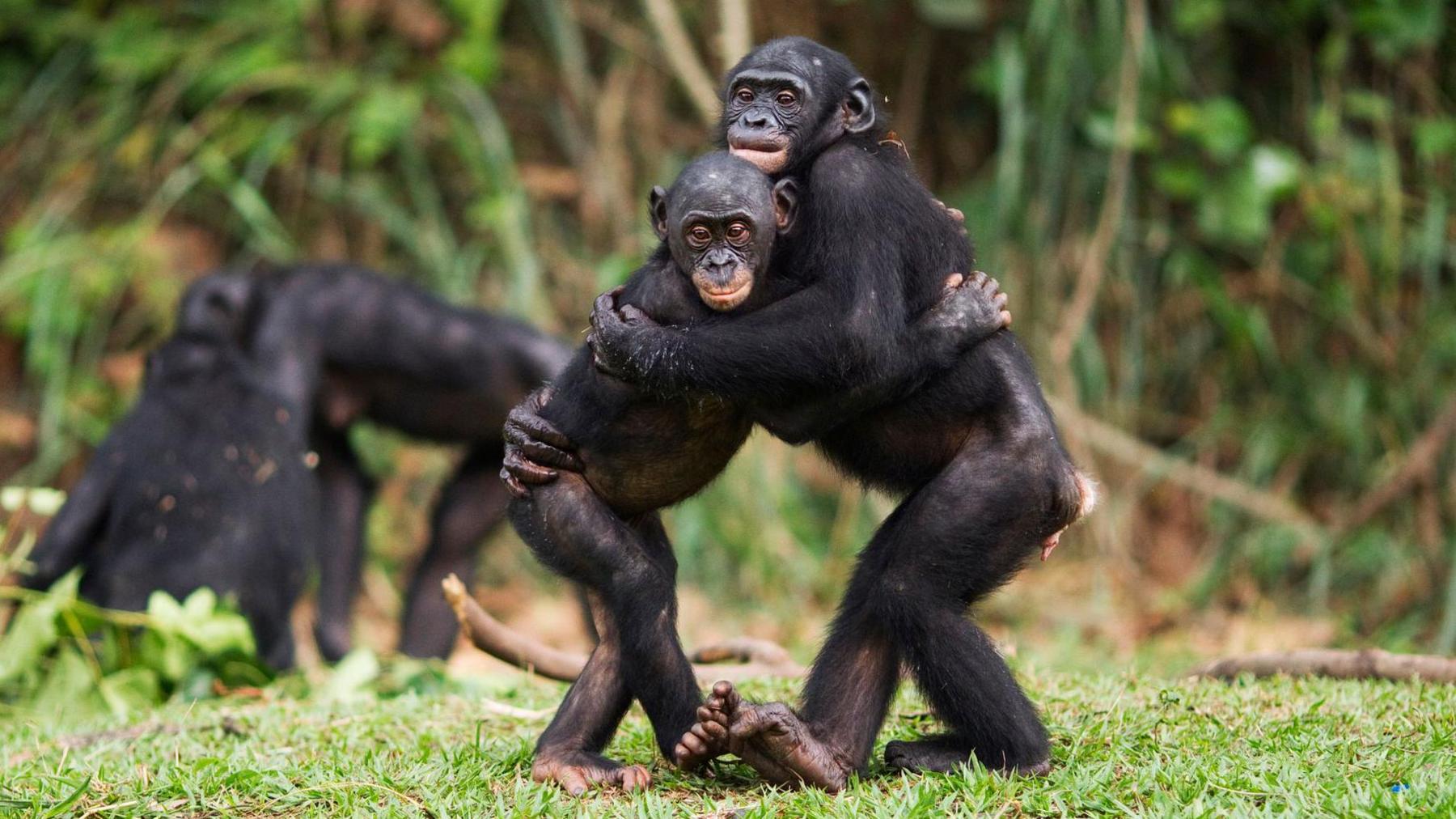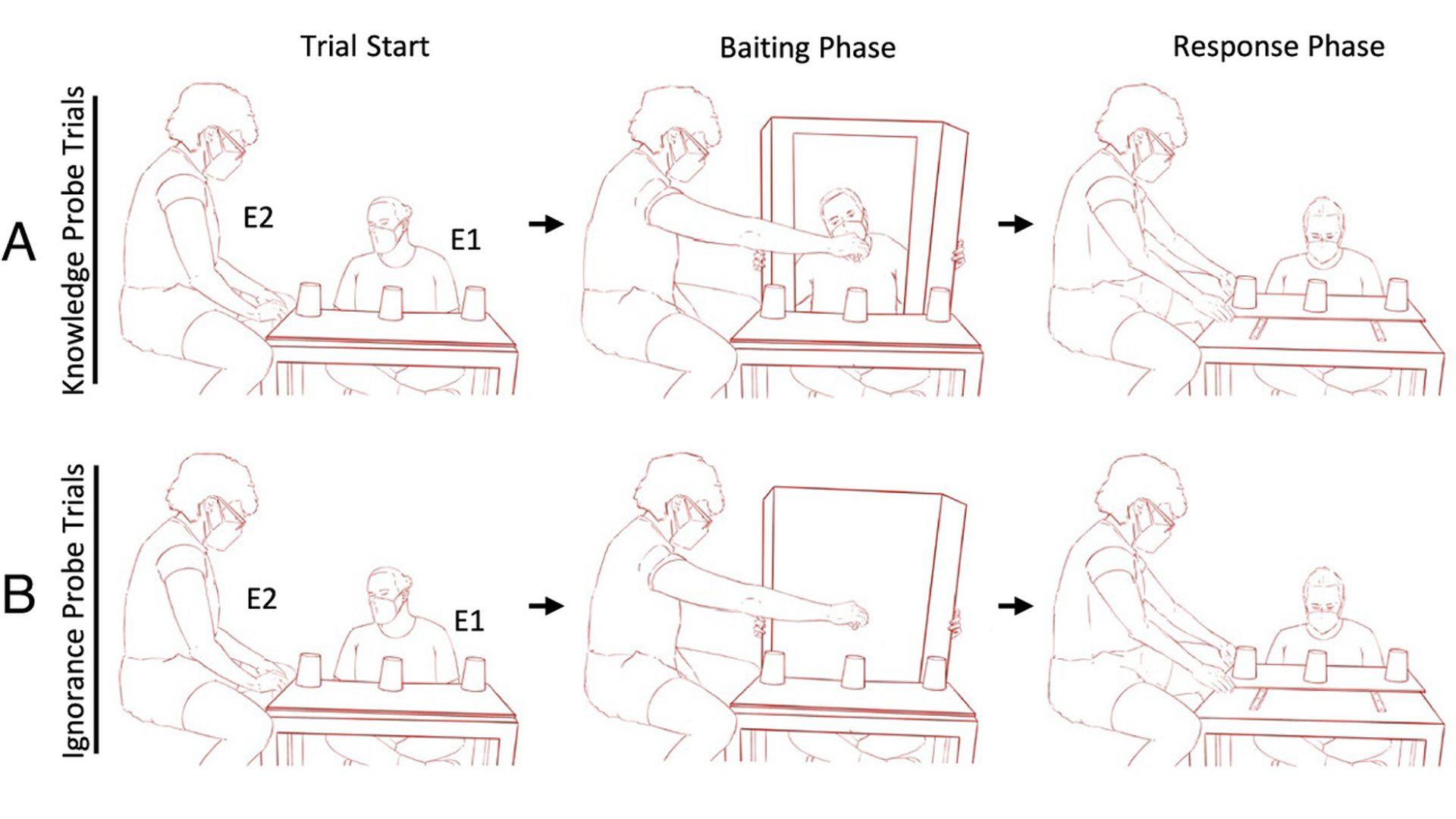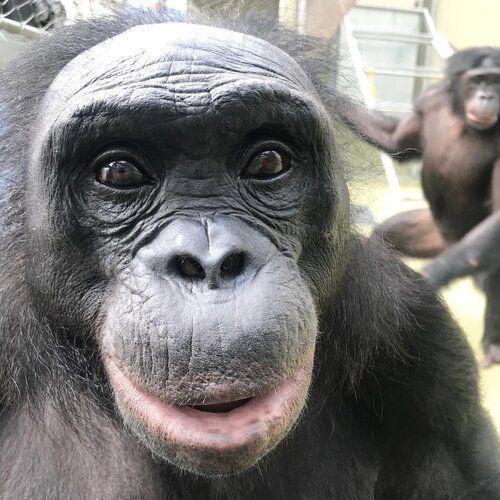Bonobos help each other understand things, say scientists

Bonobos are quick to help others to understand things, according to new research
- Published
Not sure what you're supposed to be doing? Don't worry, a bonobo can help!
A team of researchers from Johns Hopkins University in the United States, have discovered that bonobos are quick to help someone who doesn't know what they know.
Bonobos are part of the ape family, alongside chimpanzees, orangutans, gorillas, humans and gibbons.
Apes brains are more complex than monkeys, and are our closest animal relatives, sharing around 98.7% of the same DNA as us.
This new research shows that the bonobos are capable of thinking about what others are thinking about, and understand and help them.
Chimps and bonobos use same gestures as humans
- Published30 January 2023
Chimps 'can recognise' long lost friends, study finds
- Published20 December 2023

A drawing of the two tests showing how the barrier worked in the two experiments.
As part of the research, Luke Townrow and Christopher Krupenye from Johns Hopkins University, studied three male bonobos from the Ape Initiative research centre in Iowa.
They set the bonobos a test - could they recognise if a person didn't know how to do something whilst trying to complete a task together, and then show them how to help solve the task?
For the experiment a human researcher and a bonobo sat opposite each other on a table with three upside down plastic cups.
A second scientist would then place a barrier in front of the researcher and the cups, and hid a treat, like a grape under one of them.
They then ran two different tests, one where a window in the barrier allowed the human researcher to see where the treat was placed, and a different test where their view was blocked and they could not see where the treat was placed.
If the human researcher found the treat, they would give it to the bonobo, to encourage them to want to share what they knew.
They found that, on average, the bonobos took 1.5 seconds less time to point and pointed in around 20 per cent more trials in the second test where the human couldn't see the treat location.

Kanzai was one of the bonobos who took part in the experiment and the researchers said he was was "very food motivated", and "would point repeatedly" during the experiment to get the researchers attention.
"The results also suggest apes can simultaneously hold two conflicting world views in their mind. They know exactly where the food is, and at the same time, they know that their partner's view of the same situation is missing that information." said Christopher Krupenye.
"This shows that they can actually take action when they realise that somebody has a different perspective from their own," he said.
The researchers next goal is better understand the apes' motivations and how they think about others' minds.
"What we've shown here is that apes will communicate with a partner to change their behaviour," Luke Townrow said, "but a key open question for further research is whether apes are also pointing to change their partner's mental state or their beliefs."
